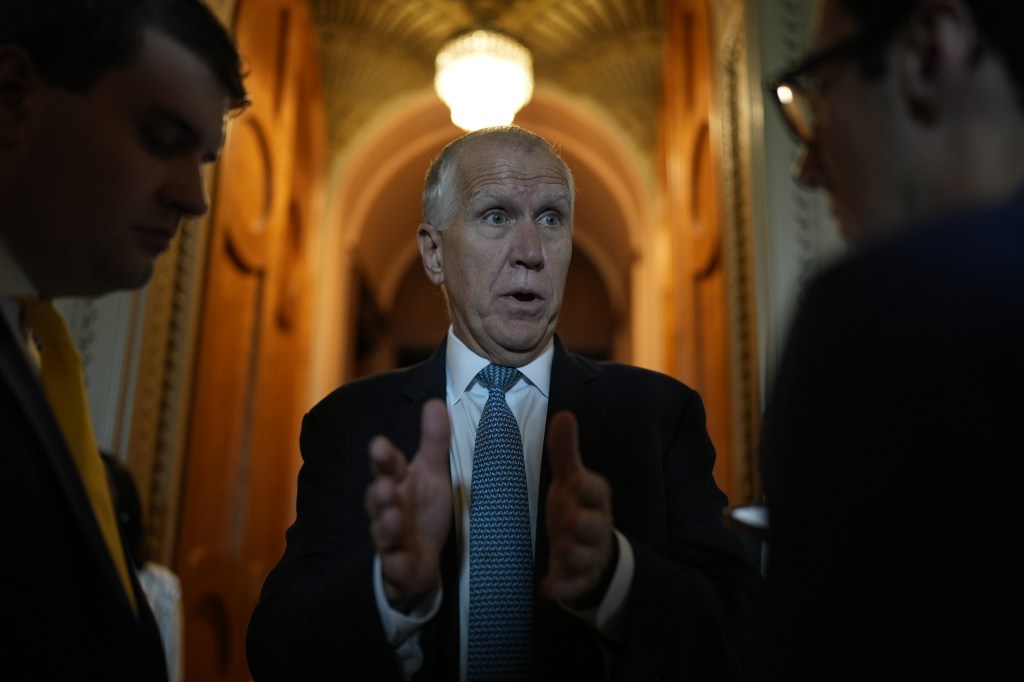Tillis: Taxpayers without student loans should not pay for those of others
(The Center Square) – North Carolinians without student loans “should not have to pay for someone else’s degree,” US Sen. Thom Tillis says.
For the 87% in the state’s population without student loan debt, the state’s senior senator says worsening inequality and adding $1.4 trillion to national debt through President Joe Biden’s student loan payment plan is not right. Tillis joined two colleagues cosponsoring reintroduction of the Student Loan Accountability Act put forth by Utah’s Mitt Romney.
In a chamber led by Democrats, the bill has been read twice and referred to the Committee on Health, Education, Labor and Pensions. Nineteen Democrats and four independents caucusing with the party are in the 33 U.S. Senate seats up for election to six-year terms through 2031, with another one of two in special elections to fill unexpired terms.

“President Biden’s illegal student loan cancellation plan is grossly unfair for the millions of people who have worked hard and sacrificed to pay off their student loans,” Tillis said in a statement. “Additionally, hardworking North Carolinians, many of whom do not have student loans themselves, should not have to pay for someone else’s degree. Instead, we must address the root causes of the rising cost of higher education, and I am proud to introduce this legislation with my colleagues to hold President Biden accountable and prevent him from causing more irreparable damage.”
Biden, on the day of his inauguration more than three years ago, paused student loan repayments. As he campaigned in April 2020, Biden vowed to “forgive all undergraduate tuition-related federal student debt from two- and four-year public colleges and universities and private HBCUs and MSIs for debt-holders earning up to $125,000.”
HBCU is an acronym for historically black colleges and universities; MSI means a minority serving institution.
Defeats in court for the Biden administration trying to shift the choice of student debt by borrowers to all taxpayers has been repeatedly followed by new programs. For example, last month a ruling by the 8th U.S. Circuit Court of Appeals blocking implementation of the Saving on a Valuable Education Plan – known colloquially as SAVE – not already blocked happened the same day of the Public Service Loan Forgiveness program’s rollout to 35,000 borrowers with $1.2 billion in debt.

Romney and colleagues, citing the Committee for a Responsible Federal Budget, a study by the Brookings Institution and a state-by-state look by the Education Data Initiative, say inflation rises for millions with no student debt because of the Biden plans. The congressmen say nearly one-third of student debt is held by the wealthiest 20% of Americans, compared to 8% of the bottom 20%; adds $1.4 trillion to the skyrocketing $35 trillion in national debt; and gives no remedy to higher education costs.
Should the proposal, first introduced two years ago, clear committee and have chance at a floor vote and movement to the Republican-majority House of Representatives, the bill would stop the respective departments of Education, Justice and Treasury from canceling or forgiving outstanding balances, portions of balances or loans. It includes “exemptions for existing targeted federal student loan forgiveness, cancellation, or repayment programs currently in effect under the Higher Education Act, such as the Public Service Loan Forgiveness and Teacher Loan Forgiveness programs,” a release from Tillis says.







